The Complete Dog Food Ingredient Guide: 24 Ingredients to Avoid and 29 Must-Have Ingredients in Dog Food
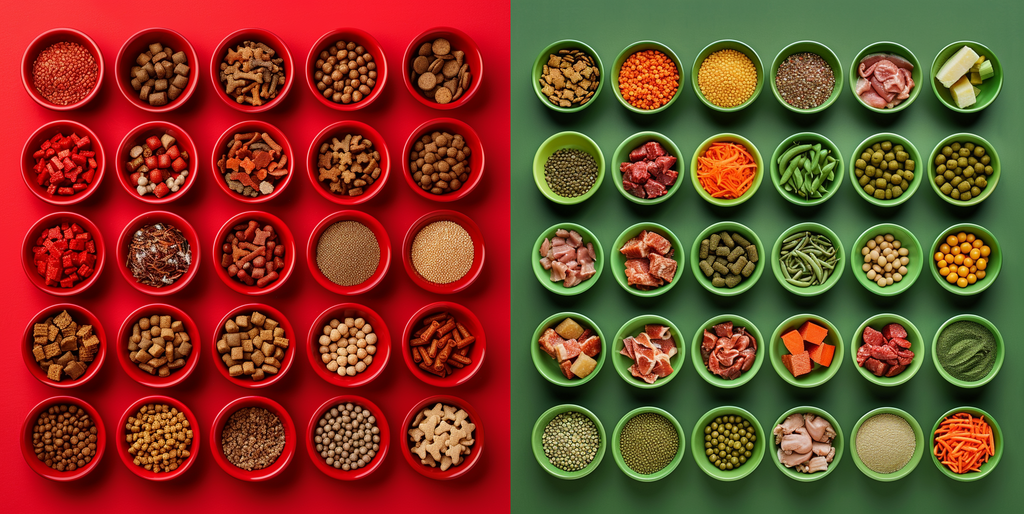
When it comes to choosing the right food for your dog, understanding the ingredients is crucial. The quality of ingredients in your dog's food can have a significant impact on their overall health and well-being. In this blog post, we will explore the good and bad ingredients commonly found in dog food.
What are the Good Ingredients?
Good dog food should contain high-quality protein sources such as chicken, beef, or fish. These proteins are essential for your dog's muscle development and overall health. Look for whole grains like brown rice or oats, which provide fiber and energy. Fruits and vegetables like sweet potatoes, peas, and blueberries are also beneficial, offering vitamins, minerals, and antioxidants.
What are the Bad Ingredients?
Avoid dog foods that contain fillers like corn, wheat, and soy. These ingredients offer little nutritional value and can be hard for dogs to digest. Artificial preservatives, colors, and flavors should also be avoided, as they can have negative effects on your dog's health. High levels of salt and sugar are not ideal for your dog's diet and can lead to health issues over time.
When reading the ingredient list on your dog's food, look for recognizable, natural ingredients that you would eat yourself. Avoid foods with long lists of unpronounceable ingredients or vague terms like "meat by-products." Your dog deserves the best nutrition possible, so choose their food wisely.
By understanding the good and bad ingredients in dog food, you can make informed decisions about what to feed your trusted companion. Remember, your dog's diet plays a crucial role in their overall health and happiness, so choose their food carefully.
|
Bad Dog Food Ingredients |
Good Dog Food Ingredients |
|
By-Products (e.g., Chicken By-Products, Turkey By-Products, Beef By-Products, Lamb By-Products) |
Named Meats (e.g., chicken, turkey, beef, lamb) |
|
Generic Meat or Meat Meal (Meat and Bone Meal, Animal Digest) |
Meat Meals (e.g., chicken meal, turkey meal, beef meal) |
|
Animal Digest |
Fish Meal |
|
Corn Gluten Meal |
Eggs |
|
Soy |
Organ Meats (e.g., liver, kidney, heart) |
|
Wheat Gluten |
sweet potatoes, potatoes, or tapioca |
|
Artificial or Hydrolyzed Proteins |
Plant-Based Proteins (in moderation, e.g., peas, lentils, chickpeas) |
|
Meat and Bone Meal |
Whole Fish |
|
Soybean Meal |
Salmon |
|
Wheat |
Sardines |
|
Corn or Corn-meal |
Tuna |
|
Artificial Colors or Flavors |
Venison |
|
BHA/BHT |
Bison |
|
Ethoxyquin |
Duck |
|
Propylene Glycol |
Rabbit |
|
Carrageenan |
Quail |
|
Rendered Fat |
Ostrich |
|
Propyl Gallate |
Buffalo |
|
Corn Syrup |
Game Birds (e.g., pheasant, goose) |
|
Added Sugars |
Goat Milk |
|
Cellulose |
Elk |
|
Added Salt |
Wild Boar |
|
Sodium Tripolyphosphate |
Anchovies |
|
Synthetic Vitamins/Minerals |
Herring |
|
Artificial Preservatives (e.g., BHA, BHT, Ethoxyquin) |
Cottage Cheese |
|
Food Dyes |
Yogurt |
|
Cornstarch |
Cheese |
|
White Flour |
Whole Grains (e.g., brown rice, oatmeal, barley) |
|
MSG (Monosodium Glutamate) |
Peanut Butter |
|
Corn Meal |
Coconut Oil |
|
Vegetable Oil |
Flaxseed Oil |
|
Soybean Oil |
Sunflower Oil |
|
Plant protein |
Meat protein |
High-quality protein sources in dog food:
-
Named Meat: Look for specific named meats like chicken, turkey, beef, lamb, venison, and fish (such as salmon or trout). These are typically high in protein and provide essential amino acids.
-
Named Meat Meal (Such as Chicken Meal): Named meat meals, such as "Chicken meal" is renowned for its exceptional protein content, boasting approximately 300% more protein than fresh chicken on a weight-for-weight basis. This concentrated protein source is derived from cooked chicken meat that has been dried and ground into a powder, resulting in a highly digestible and nutrient-rich ingredient for dogs. With its complete amino acid profile and optimal digestibility, chicken meal provides the essential building blocks necessary for muscle development, tissue repair, and overall health. Furthermore, its extended shelf life makes it a practical choice for formulating balanced and nutritious dog food diets.
-
Fish Meal: Fish meal, derived from whole fish, can provide a highly digestible and nutritious protein source, along with beneficial omega-3 fatty acids.
-
Eggs: Eggs are an excellent source of digestible protein and contain essential amino acids. They also provide vitamins and minerals like vitamin D and selenium.
-
Organ Meats: Organ meats such as liver, kidney, and heart are nutrient-dense and provide a variety of essential vitamins and minerals in addition to protein.
Low quality sources of protein in dog food:
-
By-Products: By-products are parts of animals that are not typically consumed by humans, such as organs, feet, and feathers. While they can provide some nutritional value, their quality can vary widely.
-
Generic Meat or Meat Meal: Ingredients simply labeled as "meat" or "meat meal" can come from unspecified sources, which may include parts of animals deemed unfit for human consumption.
-
Animal Digest: This is a processed product made from unspecified parts of animals. It's often used to enhance flavor but lacks transparency about its origin.
-
Corn Gluten Meal: While not a protein source on its own, it's often used to boost the protein content in dog food. However, it's a plant-based protein and may not be as digestible or nutritious for dogs as animal-based proteins.
-
Soy: Another plant-based protein source that some dogs may have difficulty digesting. It's also a common allergen in dogs.
-
Wheat Gluten: Like soy, wheat gluten is a plant-based protein that may cause allergic reactions in some dogs.
-
Artificial or Hydrolyzed Proteins: These are proteins that have been chemically altered or broken down into smaller components. While they can be used to reduce the risk of allergic reactions, they may not be as nutritionally beneficial as whole protein sources.
Are you looking for a high-quality dog food that is free from low quality ingredients like corn, soy, and wheat? Look no further than Bully Max. This premium dog food is specially formulated to provide your dog with the nutrition they need to thrive. In this blog post, we will explore why Bully Max is a top choice for pet owners who want the best for their dogs.
What sets Bully Max apart from other dog foods?
Bully Max stands out from the competition because it contains ONLY high protein sources and none of the bad ingredients that can harm your dog's health. When you choose Bully Max, you can rest assured that your dog is getting a balanced and nutritious diet without any fillers or artificial additives. See Bully Max's 5/5 star rating from dog food advisor.
What bad ingredients does Bully Max dog food avoid?
Bully Max dog food contains NO corn, NO soy, NO wheat, NO artificial preservatives, and NONE of the ingredients mentioned in the "BAD DOG FOOD INGREDIENTS" list above. These ingredients are often used as fillers in lower-quality dog foods and can lead to digestive issues, allergies, and other health problems in dogs. By avoiding these ingredients, Bully Max ensures that your dog gets only the best nutrition.
Why is high protein important for dogs?
Protein is essential for dogs as it helps support healthy muscles, organs, and immune function. Dogs are carnivores by nature, so a diet rich in high-quality protein sources is crucial for their overall health and well-being. Bully Max understands the importance of protein in a dog's diet and ensures that their food is packed with the protein your dog needs.
In conclusion, if you want to provide your dog with a high protein diet that is free from harmful ingredients, Bully Max is the perfect choice. With Bully Max, you can feel confident that you are giving your dog the nutrition they need to live a long and healthy life. Make the switch to Bully Max today and see the difference it can make for your dog!
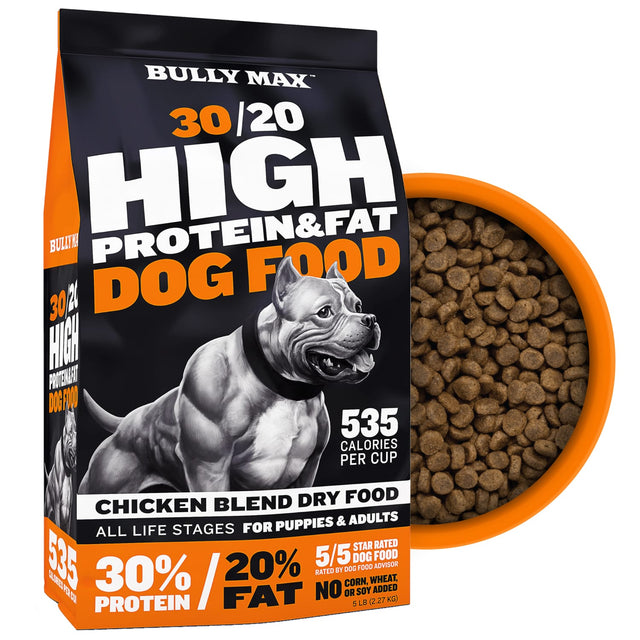
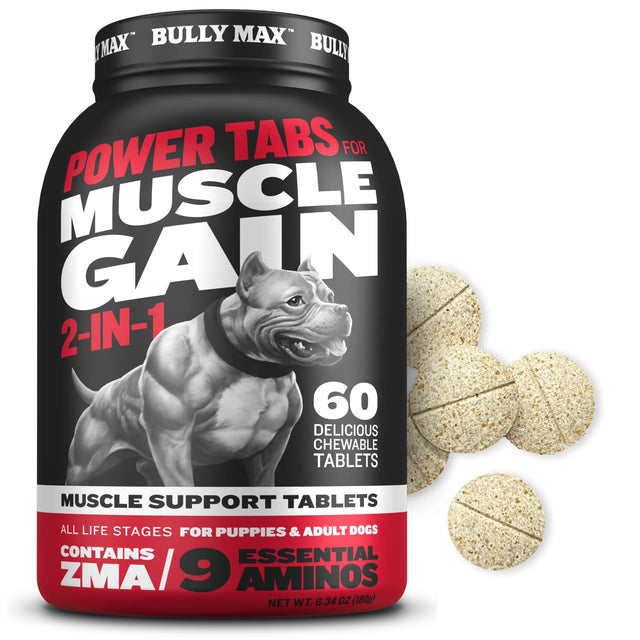
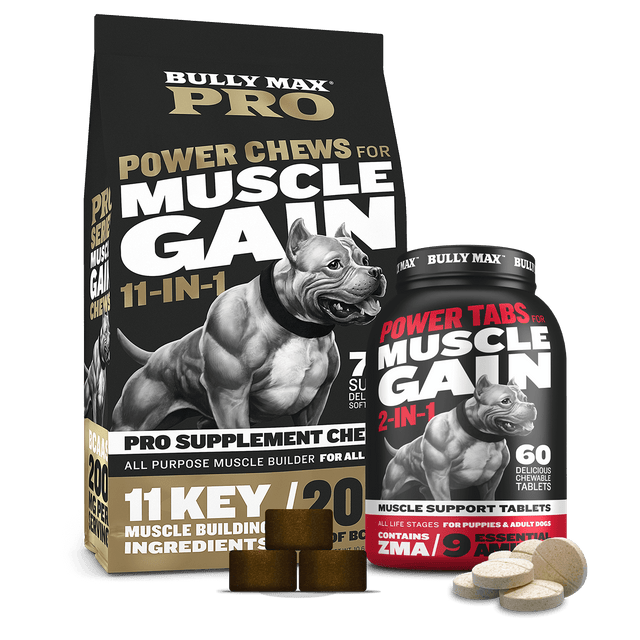
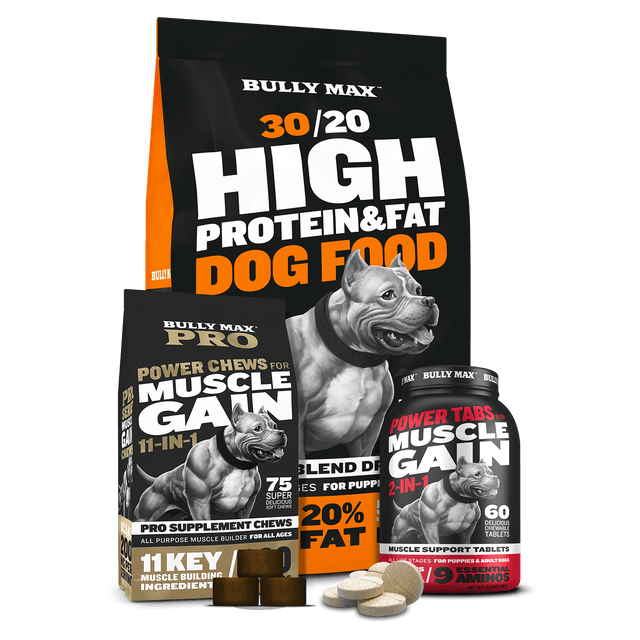
![How to Fatten Up a Dog? [Dog Trainer Explains]](http://shop.bullymax.com/cdn/shop/articles/how-to-fatten-up-a-dog.jpg?v=1714654612&width=400)
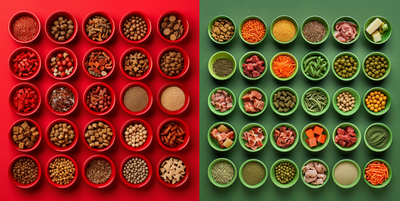
![How to Train a Search and Rescue Dog [Dog Trainer Explains]](http://shop.bullymax.com/cdn/shop/articles/Search_and_Rescue_Dogs_in_dog_training_court.jpg?v=1713867590&width=400)
